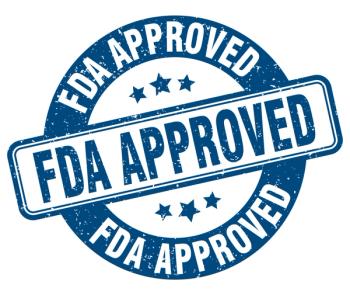
Get ready for the first annual American Pharmacists Month
APha and J&J Merck launch American Pharmacists Month in October
BREAKING NEWS... In Depth
Get ready for first annual American Pharmacists Month
The American Pharmacists Association believes that a week is just too short a time to celebrate the important role pharmacists play in patient care. So next month, APhA is joining forces with Johnson & Johnson/Merck and McNeil Consumer Pharmaceuticals to kick off the first annual American Pharmacists Month (APM) (see Drug Topics, July 26).
At a one-on-one briefing at Drug Topics' headquarters, Susan Winckler, R.Ph., Esq., APhA VP of policy and communications and staff counsel, explained that the decision to kick off a one-month educational campaign was the result of APhA's hearing from pharmacists that they wanted to have more time to reach out to the public to explain their role. "A month-long celebration will allow more pharmacists to take advantage of the celebration for the amount of time they choose," she said. "Pharmacists told us they'd do more if the celebration lasted longer. A month-long focus will also give consumers more time to be more involved with their pharmacists."
The campaign, which carries the theme, "Know Your Medicine. Know Your Pharmacist," features a toll-free hotline, 1-(877) 2MYMEDS, offering consumers the opportunity to speak to a live pharmacist on Tuesdays during October.
Karen Reed, R.Ph., who has been named the national spokeswoman for APM, was also on hand at the Drug Topics meeting. Reed is a staff pharmacist at Kmart in Beckley, W.Va., and a consultant pharmacist for Beckley Surgery Center. She also chairs West Virginia's Medicaid Drug Utilization Review Board. She explained that, in addition to focusing on the importance of patients' knowing their pharmacists, the campaign will inform consumers about the importance of knowing about their medicationsincluding how to take medications safely, what possible side effects to look out for, and what adverse events should be reported.
Emphasizing that the relationship with one's pharmacist is as important as that with other healthcare providers, Reed suggested that for each week of APM, pharmacists could launch a promotion aimed at a different group, such as seniors, women, and children's caregivers. "What these groups need to know is similar in some ways and different in other ways," she explained.
John Gans, Pharm.D., APhA's executive VP/CEO, added, "We want to make a bigger dent in the psyche of the American public that pharmacists are the ones who make a difference with medications. You have to learn about your condition." Gans recommended that consumers rely on their R.Ph.s to guide them.
As an example, Reed said parents and other caregivers need to be aware of the ingredients in the over-the-counter items they give their children. "Pharmacists should teach parents to read labels, and that if they aren't sure of the correct dose, they should ask their pharmacist to help them calculate it," she said. "The campaign will also include recommendations on OTCs new parents should have on hand."
Reed said that during the week devoted to older Americans, APhA will educate seniors about the dangers of bringing drugs back from across the border as well as the dangers of polypharmacy. When queried on whether the Medicare drug bill and the issue of drug discount cards would find their way into the educational campaign, Winckler said, "We've seen that when consumers had questions about the discount cards, some of them called the 800-number and a fair number of seniors went to their pharmacists. There are still a lot of pharmacists going to senior centers and talking about those issues."
That will be even more important in 2006, Winckler said. Pharmacists' real role will come in the fall of 2005. "They'll have a fair number of Medicare beneficiaries trying to decide what to do and what plan they should choose," she said. "We can help underscore the relationship with patients as seniors get into Medicare and make sure that one of the things consumers look at when evaluating the Medicare plans is whether they can still come to their pharmacy and work with their pharmacist."
Finally, Winckler told Drug Topics, "2004 is our pilot test. You'll see APM is much more than National Pharmacy Week has been. We expect the campaign to build in 2005 and beyond."
Pharmacists who want to join the celebration can obtain a planning guide, sample public service announcements, posters, and banners at
Newsletter
Pharmacy practice is always changing. Stay ahead of the curve with the Drug Topics newsletter and get the latest drug information, industry trends, and patient care tips.























